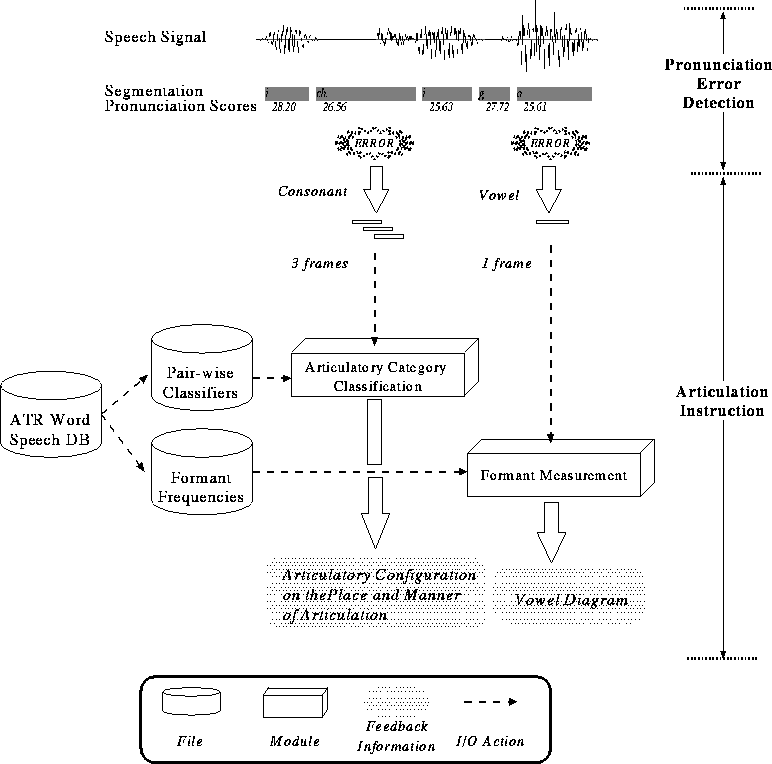Pronunciation problems of non-native learners learning Japanese as L2
are usually not addressed by language teachers, but by specially
trained linguistic expert (speech therapist). With the cooperation of
a linguistic expert, we prepared eight kinds of pronunciation, which
are known as the ones that non-native learners of Japanese have much
difficulty in pronouncing, are prepared as below[25]. Speech
samples were collected from eight male learners of Japanese from
different countries (see Table 2.3). Each learner read
the P-set of thirty words. The speech material was orthographically
transcribed.
- TYPE 1
- /u/
 /o/ distinction
/o/ distinction
tsukue (desk) mokuteki (purpose)
- TYPE 2
- /sh/
 /s/ distinction
/s/ distinction
shiNyou (trust) moushikomu (propose)
shurui (kind) shourai (future)
gakusei (student) yakusoku (promise)
- TYPE 3
- /j/
 /z/ distinction
/z/ distinction
jikoku (time) ojigi (bow)
jitsuryoku (ability)
tazuneru (visit) guuzeN (accidentally)
zeNbu (all)
chikazuku (approach)
katazukeru (dispose)
- TYPE 4
- Semi-vowel
yuubiN (mail) yoyuu (margin)
- TYPE 5
- Consonant after a mora obstruent
kekkyoku (after all) gekkyuu (salary)
- TYPE 6
- Voiced consonant /g/ and /gy/
kagayaku (shine) hogaraka (cheerful)
gyougi (manners)
kougyou (industry)
- TYPE 7
- Voiceless sound after /N/
aNshiN (relief) kiNchou (tension)
shiNkou (faith)
- TYPE 8
- Voiceless sound between vowels
ichigatsu (January)
shochi (treatment)
shuukyou (religion)




Next: Automatic Scoring
Up: 3.6.2 Task 2 :
Previous: 3.6.2 Task 2 :
Jo Chul-Ho
Wed Oct 13 17:59:27 JST 1999
 /o/ distinction
/o/ distinction  /s/ distinction
/s/ distinction  /z/ distinction
/z/ distinction